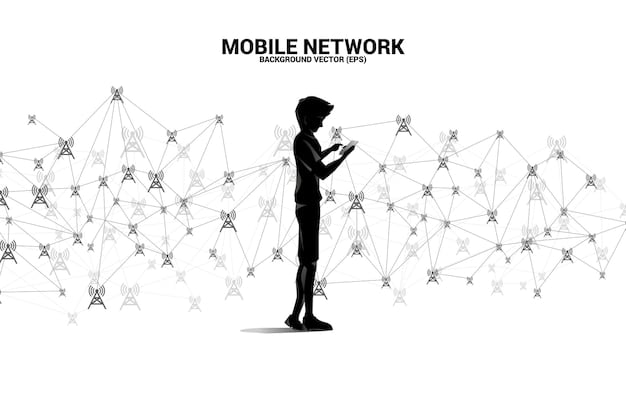The Ethics of Smart City Tech: Privacy and Equitable Access

Smart city technology ethics involve addressing critical privacy concerns and ensuring equitable access, aiming to prevent data misuse and promote inclusivity in urban development.
The rapid advancement of smart city technologies promises unprecedented efficiency and convenience, but it also raises critical questions about **the ethics of smart city technology: addressing privacy concerns and ensuring equitable access**. How do we ensure these innovations serve all citizens fairly, protecting their data and promoting inclusive growth?
Understanding the Ethical Landscape of Smart Cities
Smart cities leverage data and technology to improve urban life, but this transformation isn’t without its challenges. Exploring the ethical landscape is crucial to ensure these advancements benefit everyone and don’t exacerbate existing inequalities. What are the key ethical considerations we must address?
Navigating this landscape requires a multi-faceted approach, considering not only technological advancements but also their societal impact.
The Promise and Peril of Data Collection
Smart cities thrive on data, collecting information from various sources to optimize services and improve efficiency. However, this data collection can quickly become invasive if not handled responsibly. What types of data are collected, and how is it used?
- Tracking movement patterns through surveillance cameras and sensors.
- Monitoring energy consumption to optimize resource allocation.
- Collecting social media data to understand public sentiment.
- Gathering health information to improve healthcare services.

The ethical dilemma lies in balancing the benefits of data-driven solutions with the right to privacy. Transparency and accountability are vital to maintain public trust.
Data anonymization techniques and clear data usage policies can help mitigate privacy risks, ensuring that personal information isn’t misused or exposed.
Privacy Concerns in Smart City Development
Privacy is at the forefront of ethical debates surrounding smart cities. With increased surveillance and data collection, citizens’ rights to privacy are constantly challenged. How can we protect individual privacy while embracing smart city innovations?
Addressing privacy concerns requires proactive measures and robust governance frameworks.
The Right to Anonymity vs. The Need for Identification
Smart cities often require identifying individuals for certain services, such as personalized healthcare or targeted transportation. However, this need for identification can clash with the right to anonymity. How do we reconcile these competing interests?
- Implementing strong data encryption and access controls.
- Offering opt-in options for data collection and usage.
- Establishing a clear legal framework for data privacy.
- Conducting regular privacy audits and impact assessments.
Balancing these needs demands innovative solutions, such as differential privacy, which adds noise to the data to protect individual identities while still enabling useful analysis.
Ultimately, upholding privacy as a fundamental right is essential for fostering public trust and acceptance of smart city initiatives.
Privacy enhancing technologies offer ways that support innovation whilst reducing privacy risks in smart cities.

Ensuring Equitable Access to Smart City Benefits
Smart city technologies should benefit all residents, regardless of their socioeconomic status, race, or location. However, there’s a risk that these advancements could exacerbate existing inequalities if not implemented equitably. How can we ensure that everyone has access to smart city benefits?
Promoting equitable access requires careful planning and targeted interventions.
Bridging the Digital Divide
Access to technology and digital literacy are essential for participating in a smart city. However, many communities lack the necessary infrastructure and skills. How can we bridge the digital divide and empower all residents to benefit from smart city technologies?
- Investing in affordable broadband and internet access for all neighborhoods.
- Providing digital literacy training programs and workshops.
- Developing user-friendly apps and platforms that are accessible to all.
- Establishing community technology centers and public Wi-Fi hotspots.
By addressing the digital divide, smart cities can create a level playing field for all residents.
Promoting community engagement and including diverse voices in the planning process is critical.
Data Governance and Transparency in Smart Cities
Data governance and transparency are foundational pillars for fostering trust and accountability in smart cities. When data practices are transparent and well-governed, citizens are more likely to support and engage with smart city initiatives. How do we establish effective data governance frameworks?
Achieving this necessitates a multifaceted approach, encompassing legal frameworks, ethical guidelines, and technological solutions.
Establishing Data Ethics Committees
Data ethics committees play a pivotal role in overseeing data collection, storage, and usage within smart cities. These committees ensure that data practices align with ethical principles and legal requirements. How effective are these committees in ensuring ethical conduct?
- Developing clear ethical guidelines for data usage.
- Conducting regular ethical reviews of data projects.
- Providing training on data ethics to city staff.
- Establishing mechanisms for public feedback and complaints.
By establishing data ethics committees, smart cities can foster a culture of ethical responsibility and accountability. Transparency is also key, making data policies and practices accessible to the public builds trust and ensures that citizens are informed about how their information is used.
Regularly auditing data practices to identify and address potential ethical concerns is an ongoing process.
The Role of Regulation and Policy
Regulation and policy play a crucial role in shaping the ethical landscape of smart cities. Clear and comprehensive regulations can provide a framework for responsible data handling, privacy protection, and equitable access. What types of regulations are needed?
Effective regulations must be adaptable and responsive to technological advancements.
Balancing Innovation and Regulation
Overly restrictive regulations can stifle innovation, while lax regulations can lead to ethical breaches and privacy violations. How do we strike the right balance between innovation and regulation in smart cities?
- Implementing agile regulations that can be easily updated as technology evolves.
- Promoting regulatory sandboxes to test new technologies in a controlled environment.
- Encouraging industry self-regulation and best practices.
- Fostering collaboration between regulators, industry stakeholders, and civil society.
Finding the right balance requires a collaborative approach and a willingness to adapt to changing circumstances. Public engagement and participation in the regulatory process are essential.
The goal is to create a regulatory environment that fosters innovation while safeguarding fundamental rights and values.
Public Engagement and Education in Smart City Initiatives
Public engagement and education are essential for the successful and ethical implementation of smart city initiatives. When citizens are informed and engaged, they are more likely to support and participate in these projects. How can we foster meaningful public engagement?
Effective public engagement requires a multi-pronged approach including the active solicitation of public input.
The Importance of Informed Consent
Informed consent is a cornerstone of ethical data collection and usage. Citizens should be fully informed about how their data is being collected, used, and shared, and they should have the right to opt-out. How can we ensure informed consent in smart cities?
- Providing clear and accessible explanations of data privacy policies.
- Obtaining explicit consent for data collection and usage.
- Empowering citizens to access, correct, and delete their data.
- Establishing independent oversight mechanisms to ensure compliance.
By prioritizing informed consent, smart cities can build trust and empower citizens to make informed decisions about their data. Digital literacy programs can help the public engage more fully with smart city technologies.
Transparency and accountability are crucial for fostering public trust and ensuring that smart city initiatives align with community values.
| Key Aspect | Brief Description |
|---|---|
| 🔒 Privacy Protection | Safeguarding personal data through robust security and anonymization methods. |
| ⚖️ Equitable Access | Ensuring all residents benefit from smart city technologies, regardless of socioeconomic status. |
| 🤝 Data Governance | Establishing clear policies and ethics committees to oversee data usage. |
| 📣Public Engagement | Involving citizens in planning and decision-making processes fosters trust. |
FAQ
▼
The primary ethical concerns revolve around privacy breaches due to extensive data collection, ensuring equitable access to technology benefits, and maintaining transparency in data governance and usage.
▼
Smart cities can protect privacy by implementing strong encryption, providing opt-in options for data collection, establishing clear legal frameworks, and conducting regular privacy audits.
▼
Equitable access means ensuring that all residents, regardless of socioeconomic status, have equal opportunities to benefit from smart city technologies and services.
▼
Public engagement fosters trust, ensures that initiatives align with community values, and empowers citizens to participate in decision-making processes, leading to more successful projects.
▼
Regulations provide a framework for responsible data handling, privacy protection, and equitable access, balancing innovation with ethical considerations and safeguarding citizens’ rights.
Conclusion
Addressing **the ethics of smart city technology: addressing privacy concerns and ensuring equitable access** is paramount. By prioritizing privacy, promoting equitable access, and fostering public engagement, smart cities can harness the power of technology to create more inclusive, sustainable, and livable urban environments for all.





